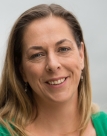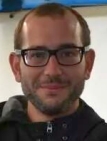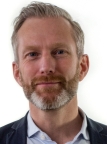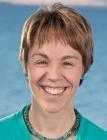
Jason Link National Marine Fisheries Service (NMFS), NOAA, USA
Dr. Link is the Senior Scientist (ST) for Ecosystem Management with the National Oceanic and Atmospheric Administration’s (NOAA) National Marine Fisheries Service (NMFS). In this role, Dr. Link leads approaches and models to support development of ecosystem-based management plans and activities throughout the agency, serving as the agency’s senior-most authority on ecosystem science. Dr. Link has written several books and book chapters on the topic of Ecosystem-based Fisheries Management, has written over 200 peer-reviewed publications, over 300 reports (~100 citable), has over 325 published abstracts, and has convened over 10 major international symposia and summits on marine ecosystem management and modeling-related topics. Dr. Link has led the development of several strategic documents for NOAA and NMFS to improve and enhance mission-needed science. Dr. Link has been a champion of ecosystem science and ecosystem-based management, both as a discipline and as a practice, for resource management agencies in the U.S. and around the world, sitting on several international advisory boards and the editorial board of an international marine science journal.
Dr. Link has extensive experience working in marine and Great Lakes systems around the world. Dr. Link has helped to establish, develop and foster: National Ecosystem Modeling Workshops for NMFS; multiple interdisciplinary modeling teams; comprehensive and balanced energy budgets used directly in living marine resource management contexts; focused marine ecosystem condition and status reports in the U.S.; best practices for two internationally known and used ecosystem models; a tome to operationally characterize Ecosystem-based Fisheries Management; the NMFS EBFM Policy Statement and Road Map; dedicated ecosystem assessment programs in NMFS; the Climate Science Strategy; among others. The body of Dr. Link’s scientific work has spanned both theoretical and applied aspects, particularly serving to further drive the development of: ecosystem indicators; pragmatic inclusion of trophic ecology and broader, ecosystem considerations directly into the resource management process; national and international definitions of Ecosystem-based Fisheries Management; wider consideration of complexity and systems perspectives; advancing food web theory; and global comparisons of marine ecosystem process, structure and function. His science has particularly produced discoveries on: marine food web topology and parameterization as distinct from terrestrial food web theory; globally consistent patterns in marine ecosystem cumulative biomass distributions that have clear management application; and delineation of ecosystem overfishing thresholds applicable globally.
Dr. Link remains committed to the next generation of scientists: formally mentoring dozens of NOAA personnel; championing various NOAA fellowship and training programs; teaching graduate-level courses; and serving on multiple graduate student committees. He continues to try to innovate as a science communicator: establishing the ability for complex ecosystem model output to be viewed in an animated world; developing various Ecosystem-based Management videos; and even producing the first ever comic strip published in a peer-reviewed marine science journal; among others.
Dr. Link received his B.S. from Central Michigan University and his Ph.D. from Michigan Technological University. Dr. Link holds an adjunct faculty position at the School for Marine Science and Technology at the University of Massachusetts. He is a fellow of the American Institute of Fishery Research Biologists and has received the Fisheries Society of the British Isles Medal for significant advances in fisheries science and a Department of Commerce Bronze medal.
Gretta Pecl Institute for Marine and Antarctic Studies (IMAS), Centre for Marine Socioecology (CMS) Tasmania, Australia
Professor Gretta Pecl is an Australian Research Council Future Fellow at the Institute for Marine and Antarctic Studies (IMAS), and the Director of the Centre for Marine Socioecology (CMS), both based in Tasmania, Australia. She has broad interdisciplinary research interests and a passion for science engagement and communication with the public. Much of her current research centres around understanding climate change impacts in marine systems, and how our marine fisheries and aquaculture industries and coastal communities may best adapt to these changes. Gretta’s research has a particular focus on climate-driven species redistribution, including multi-faceted approaches to developing a mechanistic and process-based understanding of the high variation in rate and magnitude of species range shifts. She was the instigator and co-convenor of the ‘Species on the Move’ conferences and developed and leads the very successful National citizen science project Redmap Australia, the Range Extension Database and mapping project, which invites fishers and divers around the coastline to help monitor changes in species distributions in Australian seas. Together with a leadership team based at the Centre for Marine Socioecology, Gretta leads the Future Seas initiative which uses ‘foresighting’ techniques to develop interdisciplinary, evidence-informed plausible scenarios of the future by 2030, for key challenges in our oceans. The initiative then takes a broad and unique look at what processes and approaches have been and could be effective for leveraging change, across all levels of intervention, to achieve a more sustainable future by 2030. Gretta is on the editorial board for Reviews in Fish Biology and Fisheries, is an Associate Editor for Ocean Solutions (specialty section of Frontiers in Marine Science), as well as a subject editor for Ecography.

Midori Kawabe Department of Marine Policy and Culture, Tokyo University of Marine Science and Technology (TUMSAT), Japan
Midori Kawabe is a professor at Tokyo University of Marine Science and Technology. Her area of expertise is Coastal Zone Management, where she is conducting research on the ways that the local community that relies on rich coastal ecosystem services is actively involved. She is highly interested in the process of social learning as well as social consensus building between coastal stakeholders related to the coastal resource and environment use. Currently, she is engaged in the research projects including: the sustainability of resource-environmentally friendly seafood systems in which the distributors and consumers support producers; the process of democratization in fishermen's organizations in the 1970s in Hokkaido; the requirements for consensus building of fishery sectors with new ocean users.
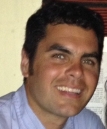
Jameal Samhouri Northwest Fisheries Science Center, NMFS, NOAA, USA
I am a quantitative marine ecologist and conservation scientist at the NOAA Northwest Fisheries Science Center in Seattle, Washington, USA. Through field experiments, quantitative analysis, and the development of mathematical models, my research focuses on how people's activities influence marine ecosystems, and how changes in marine ecosystems affect people.
A fish guy at heart, my current research areas of interest include theory and practice in ecosystem restoration and recovery, ecosystem-based reference points, vulnerability of fisheries and fishing communities to climate change, and effects of coastal activities on seagrass community dynamics.
Most of my work now centers on the California Current Large Marine Ecosystem, including Puget Sound, but I have also worked in several places throughout the Caribbean studying coral reefs.
More...

Caroline Butler Planning and Community Research for the Gitxaała Nation, BC, Canada
Caroline Butler is the Manager of Planning and Community Research for the Gitxaała Nation in British Columbia. Caroline is a cultural anthropologist whose academic research has focused on indigenous fisheries, local ecological knowledge, fisheries privatization, and research processes and methods. She has worked with the Gitxaała Nation on both academic and community-based research projects since 2001, and has been an employee of the Nation since 2009. Caroline coordinates community-based and collaborative marine planning initiatives in Gitxaała Territory, and designs and facilitates community engagement in research and documentation to support cumulative effects monitoring, geographic response planning, environmental assessments, and heritage protection. Her primary focus over the last few years has the been the development and implementation of the Gitxaała Marine Use plan, which involves government to government negotiations with British Columbia and Canada. She is currently participating on behalf of Gitxaała in the design of a network of Marine Protected Areas for the Northern Shelf Bioregion, which is co-governed by Canada, British Columbia, and 17 indigenous governments.
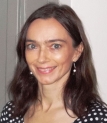
Päivi Haapasaari Faculty of Biological and Environmental Sciences, University of Helsinki, Finland
Päivi Haapasaari works as a professor in multidisciplinary risk analysis in the Ecosystems and Environment Research Programme of the Faculty of Biological and Environmental Sciences at the University of Helsinki. Her academic background is in fisheries management (PhD) and cultural anthropology (MA); in 2016 she was awarded the title of Adjunct Professor in environmental policy by the University of Helsinki. Päivi’s research covers social scientific and inter/transdisciplinary approaches to marine environmental problems and resource use, and to maritime safety. She is also interested in the essence of interdisciplinarity as such. Her methodological expertise includes e.g. risk and decision analysis using Bayesian networks, governance analysis, scenario building, stakeholder engagement and participatory modelling. Päivi leads the Marine Risk Governance Research Group (MARISK) at the University of Helsinki. She is a member of the executive committee of Kotka Maritime Research Centre that conducts multi- and interdisciplinary research to improve maritime safety in order to prevent accidents and to protect the marine environment. She has contributed to the work of ICES working groups (WG on Risks of Maritime Activities in the Baltic Sea (WGMABS), Integrated Assessment of the Baltic Sea (WGIAB), and Working Group on Fishery Systems (WGFS)). In 2017-2018 she worked at the Centre for Blue Governance of Aalborg University, Denmark, and in 2003-2007 at the Department of Sociology and Gender Studies of the University of Oulu, Finland.
Chris Lynam Centre for Environment, Fisheries and Aquaculture Science (Cefas), UK
Chris Lynam is a scientist at the Centre for Environment, Fisheries and Aquaculture Science (Cefas). As a biodiversity and food webs adviser to government he supports the implementation of the UK Marine Strategy through evidence provision. His interest lies in understanding how fisheries and other human impacts might be best managed given the direct and indirect responses of species and ecosystems in a changing climate. His research aims to take an integrative approach and has included monitoring and modelling changes in primary production, zooplankton, fish, elasmobranchs and food webs in relation to changing environmental conditions, habitats, fishing pressure and the presence of man-made structures in the marine environment. Chris co-chairs the ICES Working Group on Biodiversity Science and contributes to numerous international working groups including the "Intersessional Correspondence Group on the Coordination of Biodiversity Assessment and Monitoring" for The Convention for the Protection of the Marine Environment of the North-East Atlantic (OSPAR).
Henrik Österblom Stockholm Resilience Center, Stockholm University, Sweden
Henrik Österblom has a PhD in Marine Ecology from the Department of Systems Ecology at Stockholm University, and a Master’s Degree in Behavioural Ecology from the Department of Zoology at Uppsala University.
He is interested in ocean ecosystems and ways to improve stewardship of marine resources. Starting as a seabird ecologist, with a particular interest in social interactions between alcids, he has worked on understanding how the Baltic Sea is managed, how international collaboration emerged to address non-compliance in Southern Ocean fisheries, and how transnational corporations shape the present and future ocean. Ongoing work is focusing on the speed and role of science in society, global cooperation and altruism, and understanding cascading industry effects from novel sustainability approaches. He has worked at the Swedish Museum of Natural History, and as Special Advisor to the Swedish Government in the Secretariat for the Environmental Advisory Council.
Henrik Österblom is leading the Keystone Dialogues, a global co-production project including major private actors in global seafood, which has resulted in the establishment of the Seafood Business for Ocean Stewardship (SeaBOS) initiative, aimed to transform global seafood towards more sustainable practices. He is principal investigator in the Nereus-Predicting the Future Oceans Program, and member of the IMBER Human Dimension Working Group, the Future Earth Knowledge Action Network and the Seas of Norden Network.
Jess Melbourne-Thomas Oceans & Atmosphere (CSIRO), Centre for Marine Socioecology (CMS) Tasmania, Australia
Dr. Jess Melbourne-Thomas is a Transdisciplinary Researcher and Knowledge Broker in the marine ecosystem modelling and risk assessment group based at CSIRO Oceans & Atmosphere in Hobart. With a background in ecosystem science and marine ecosystem modelling, her current role is focused on helping to bridge the science-user-policy divide, as well as understanding how people make decisions, how they use information, and how best to communicate and engage regarding change and management for marine social-ecological systems. Jess served as a Lead Author for the IPCC’s Special Report on the Oceans and Cryosphere in a Changing Climate (2019) and co-founded the Homeward Bound program for women in science and leadership. She was recently named the 2020 TAS Australian of the Year for her work in climate change science and communication.
- Manuscript submission for publication

